Our People
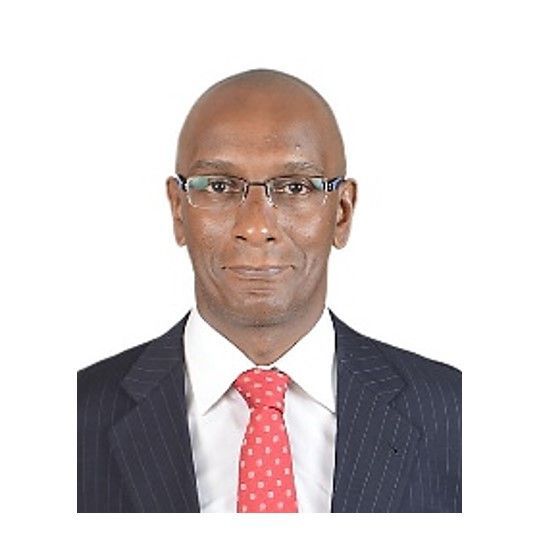
AHMED BADAWI - FOUNDER & MANAGING DIRECTOR
Ahmed Badawi, the founder and Managing Director of Barkal Communications, has dedicated over two decades to mastering the intricacies of government relations, public affairs, media relations, crisis management, reputation protection, geopolitical and political risk analysis, and public relations and marketing. With his extensive background and diverse professional experience, Ahmed has a deep understanding of client needs and creating customized strategic communications solutions to effectively sway stakeholders and achieve desired outcomes.
As a native Brit with a British education, Ahmed possesses unique skills that he has honed while serving as a strategic communications counsel consultant in Sudan - widely considered one of the most complex environments in the world. His unparalleled ability and adaptability make him an invaluable asset to Barkal’s clients for their strategic communications needs.
During significant events in Sudan, he honed his abilities and cultivated relationships with various governments and media outlets in Britain, America, Europe, Asia, Africa, and the Middle East; field experience that is extremely rare and valuable for anyone seeking Barkal's assistance with government relations, public affairs, media relations, reputation protection, crisis management, public relations, marketing, and geopolitical and political risk management.
Among his many consultancies, Ahmed played a crucial role in providing strategic communication support to Sudan's government during the US-facilitated South Sudan independence negotiations in Washington, D.C. This included crafting messaging and speeches for senior officials of the Sudanese government during their discussions with the US Department of State.
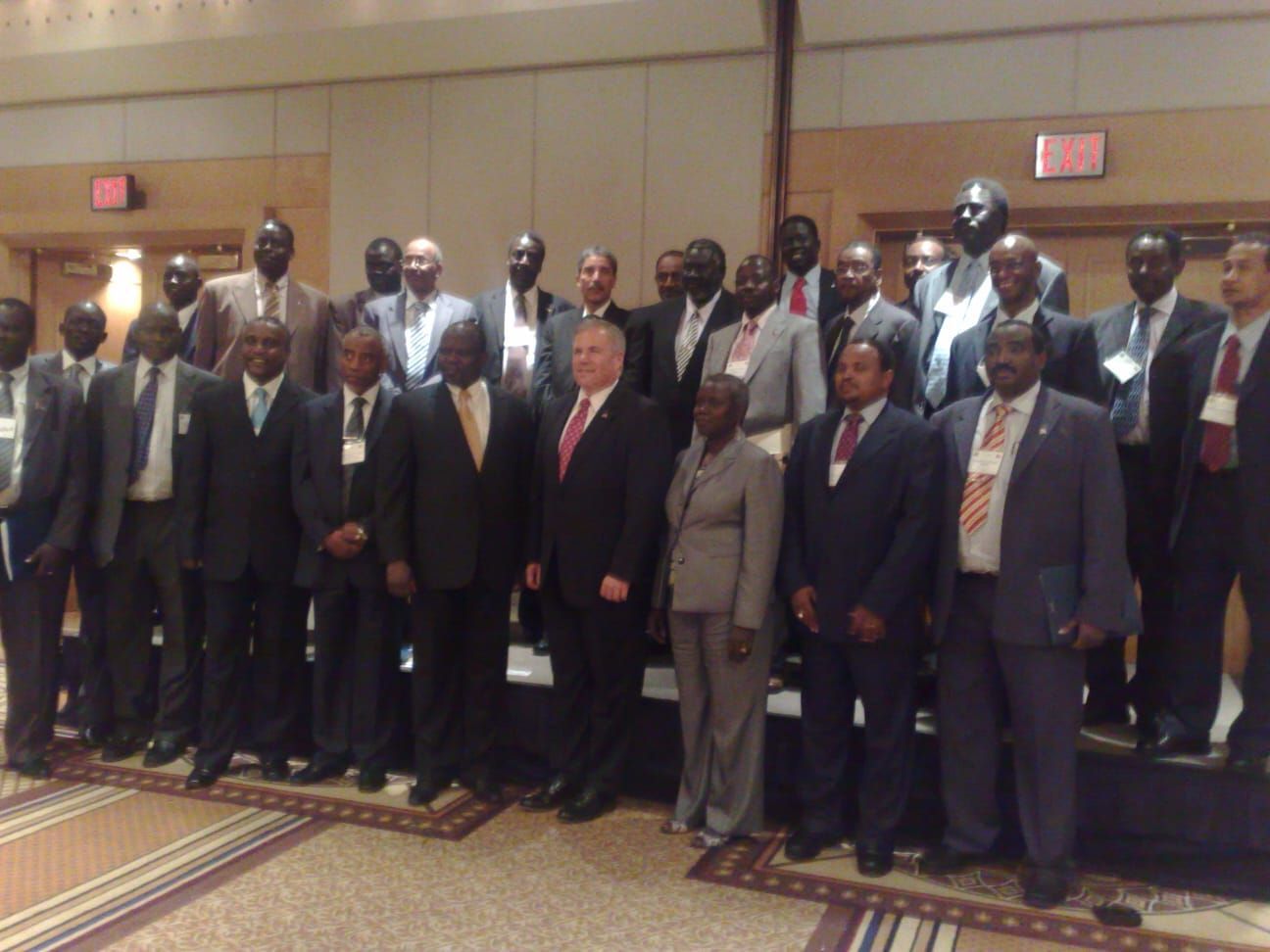
Ahmed Badawi, second row, third to the right as strategic communications advisor - Government of Sudan and Representatives of the autonomous Government of Southern Sudan with US Presidential Special Envoy, John Gration, Washington, D.C. May 2009
Ahmed's track record as a strategic communications consultant in Sudan includes several notable achievements. One of his major successes was his instrumental role in crafting letters on behalf of the Sudanese president and other senior government officials to their American counterparts, presaging the easing of US sanctions during ex-President Omar Bashir's reign.
Additionally, Ahmed was personally selected to draft Sudan's first response to Bashir's ICC indictment in 2008 (see here A Sad Day for Sudan | African Arguments), earning high praise from Alex de Waal, a world-renowned expert on Sudan affairs, who dubbed it a "strong and convincing defence". (Incidentally, ‘Ibrahim Adam’, who posted the intro to the statement, was an alias Ahmed used frequently.)
During the crisis with the ICC, Ahmed also took the initiative to reach out to the US government, inviting the then Senate Foreign Relations Committee Chairman, John Kerry, to Khartoum; he even personally received Chairman Kerry at the airport.
After John Kerry’s visit, Ahmed also held a crucial follow-up meeting with his chief of staff in Washington DC, and in Connecticut with the chairman of InterAction, the powerful coalition of US aid groups, striving to prevent any potentially explosive missteps in bilateral relations between Sudan and the US following the expulsion of international aid groups in Darfur by President Bashir in early 2009.
Indeed, Ahmed played a pivotal role in facilitating the acceptance of both the US and Sudanese governments for ‘re-hatting’ the expelled aid groups, which allowed them to resume operations in Darfur with superficial cosmetic changes; see this
NPR
interview by
John Kerry
on the issue:
Kerry Offers Details On Sudan Aid Deal : NPR
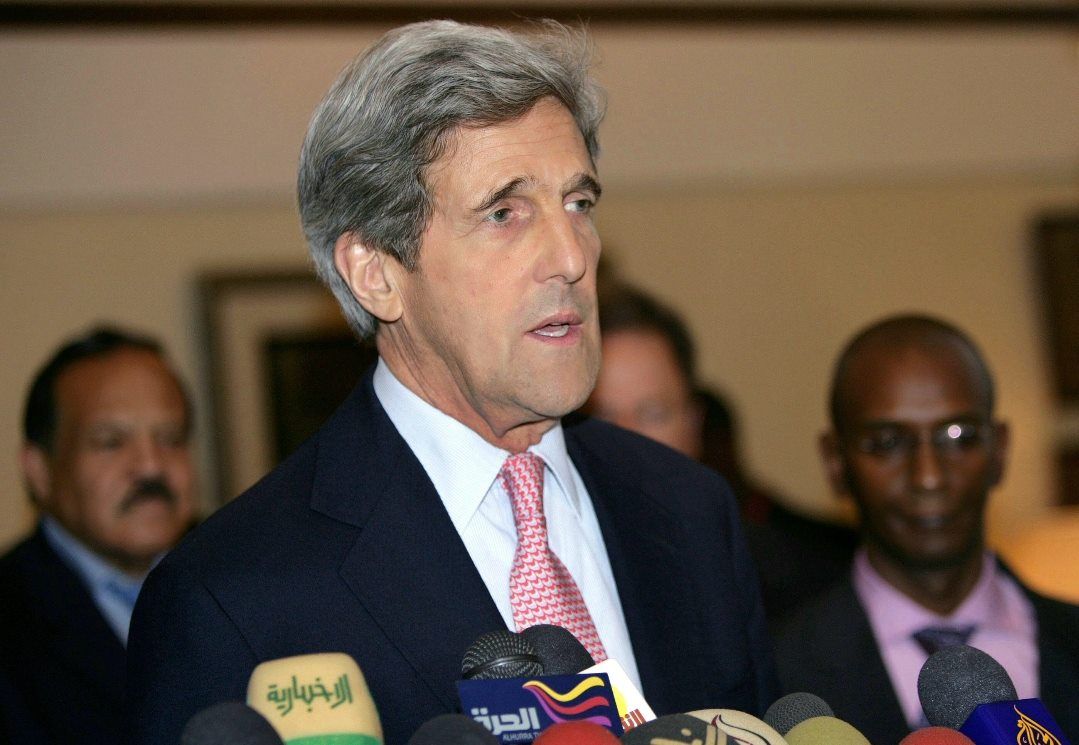
Senate Foreign Relations Chairman, John Kerry – press conference, Khartoum International Airport, April 2009. Ahmed Badawi behind to the right of Senator Kerry’
Ahmed used his expertise in public affairs to engage with influential stakeholders in Sudan and effectively leverage coalition-building assets internationally to advance strategic objectives of the government. Notable accomplishments included:
- Providing advice to Sudan on navigating crisis situations and developing effective messaging strategies, particularly in high-profile meetings with US activist groups amidst intense Darfur attention in the country.
- Leading communications efforts for the first official meeting between the Sudanese government and the infamous Save Darfur Coalition, under the auspices of the US presidency.
- Providing back-channel counsel to ensure smooth communication between INGOs and the Sudanese government in resolving operational disruptions in the initial aftermath of the ICC indictment.
He arranged briefings and talking points for senior Sudan government and public officials and provided counsel at think tanks in Washington, D.C, with influence over US government policy and reputational rebuilding, including the Atlantic Council, United States Institute for Peace (USIP), and National Endowment for Democracy (NED).
- As a thought leader, Ahmed shared his insights on the complexities of the Darfur conflict, the impact of US economic sanctions, and other pressing issues, serving as a keynote speaker at Sudan events at, amongst others, the National Press Club and Georgetown University in Washington (see link: Sudan: Narrowing the Escape from Poverty | African Arguments), and the EastWest Institute in Brussels.
As a consultant to the Sudanese government, Ahmed used his extensive media relations ability and leveraged his rich family background in the media profession to provide comprehensive services (see MEDIA RELATIONS).
These included arranging interviews and providing talking points (plus in-person support) to Sudanese ministers for engagements with Western media. And he also quickly crafted responses to counter misleading or inaccurate articles by UK and other Western journalists, particularly those surrounding the sensitive Darfur conflict and other reputation and crisis drivers.
One of Ahmed's standout services was his efforts to challenge the prevailing oversimplified narrative depicting the Darfur conflict and Sudan generally as a land of unrelenting and uniform misery; no small feat, given the intense international focus and activism surrounding the conflict and the lead up to the eventual independence of South Sudan.
As part of his media relations services, Ahmed also provided regular push-back against the dominant, but overly simplistic, portrayal of the Darfur conflict and Sudan as a land of unrelenting and uniform misery; no mean feat at the zenith of international activist focus on the conflict and the run up to the independence of South Sudan. He notably bent the arc of the Sudan narrative by illuminating the role of US economic sanctions in fuelling the Darfur conflict. He also directed the attention of Western media to Sudan’s status as one of Africa’s fastest growing economies and a rare successful graduate to middle income status on the continent; see, for example, this article here in The Economist magazine arranged by Ahmed Badawi (https://www.economist.com/special/2006/12/07/glittering-towers-in-a-war-zone.)
Ahmed Badawi also shared his expertise on current Sudanese issues through thought-provoking op-eds in high profile Western media outlets like The Guardian and the Royal Africa Society (a locus of high level international strategic communications strategising on Africa – including contributions from senior US government officials). Not only was he interviewed frequently by world-renowned media sources such as the BBC, Radio France Internationale (RFI), Forbes Magazine, and the Daily Telegraph, but Ahmed also provided tailored media training to noteworthy figures like the former foreign minister of the Republic of Congo and joint AU-UN envoy on Darfur, Rodolphe Adada.
No firm in the UK rivals the top tier exposure and experience of Barkal gained from its founder’s wide communications and strategy achievements for the Sudanese government.
Our know-how at Barkal, however, has much deeper roots than that.
It goes right to the heart of Washington, DC:
the World Bank.
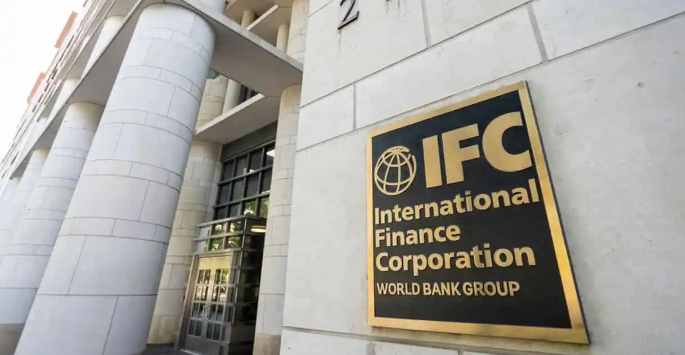
Before working and living in Sudan, Ahmed Badawi gained valuable experience managing complex strategic communications in the Washington, DC HQ of the International Finance Corporation (IFC), the private sector investment and advisory arm of the World Bank Group. As a media and marketing manager for the IFC's Middle East and Africa operations, he oversaw crucial areas such as media relations, public affairs, reputation management, crisis communication, and marketing.
With his strategic communication skills, Ahmed used his expertise to drive forward complex development initiatives across stakeholders worldwide at the highest levels of the IFC. Effectively shaping narratives surrounding intricate issues, he engaged with policymakers, affected populations, CSOs, media, and NGOs.
At IFC, he had the role of media spokesperson for the Middle East and Africa. He regularly produced and disseminated external communication outreach materials such as press releases, backgrounders, and Q&As, ensuring the prompt and strategic delivery of information about IFC’s investments and advisory interventions in the region to the media, NGOs, and populations affected by projects. Ahmed also proactively crafted and pitched stories to media outlets to advance IFC's business development goals in the Middle East and Africa.
He also counselled IFC staff on media events and authored their media engagement guide - which is still the reference today, too. Ahmed even went beyond that by writing speeches for the IFC managing director at two major international conferences.
In addition, he took charge of communication efforts for significant projects in the MENA and Sub Sahara Africa regions, including Morocco's inaugural PPP, Egypt's first private housing finance firm, and a $20M credit line in Nigeria aimed at boosting fixed private investment. In his role at IFC, Ahmed also played a crucial role in advising top-level staff on strategies for building coalition assets and managing reputational issues. He also helped devise crisis planning strategies in projects that had a high potential for disruption, notably the Chad-Cameroon oil pipeline and other investments in natural resources and infrastructure sectors within Africa and the Middle East.
Ahmed was also responsible for figuring out the extent of information disclosure on the IFC websites for the Middle East and Africa regions, with the goal of influencing external audiences to support its mission of promoting sustainable economic development through private sector involvement. In addition, he played a key role in organizing and creating promotional materials, such as customised posters, brochures, and leaflets, for media events, important business gatherings, and donor conferences in the Middle East and Africa that were sponsored or participated in by IFC.
Khartoum and Washington, D.C. hold significant meaning for Barkal Communications. However, we passionately believe that every journey begins at home - and for us, this means London.

Before joining the IFC, Ahmed Badawi held the position of Account Director at Raitt Orr & Associates, a boutique consulting firm, based in London, focused on government relations and public affairs in or relating to Africa. For almost thirty years, Raitt Orr was the exclusive advisor to the government of Kenya for government relations, media, and public affairs.
During his time at Raitt Orr, Ahmed Badawi played a pivotal role in the Kenyan Ministry of Foreign Affairs by regularly crafting and distributing press releases. He also conducted a comprehensive review of communications strategies and offered behind-the-scenes help, both remotely and in-person, to the Ministry of Information and Strategic Communications Counsel. This included drafting media talking points and providing support to Kenyan ministers and diplomats in preparation for the December 2002 general elections.
In addition, Ahmed closely monitored both traditional and new international media outlets on behalf of the Kenyan government. He swiftly responded to any negative coverage, working towards restoring the country's reputation. Two of his responses were notably published in the Financial Times and the New York Times (see Barkal in Action). Ahmed also wrote speeches for the Kenyan authorities, including the new year’s televised address to the nation by the late President Daniel arap Moi.
Teaming up with co-founder of the firm, Ahmed took on a crucial role at Raitt Orr, working to lobby both the UK government's legislative and executive bodies in support of Kenya. He deftly orchestrated meetings and crafted effective strategic communications for Kenyan ministers, drawing on coalition-building resources in the UK such as the
East Africa Association
and the
London Chamber of Commerce.
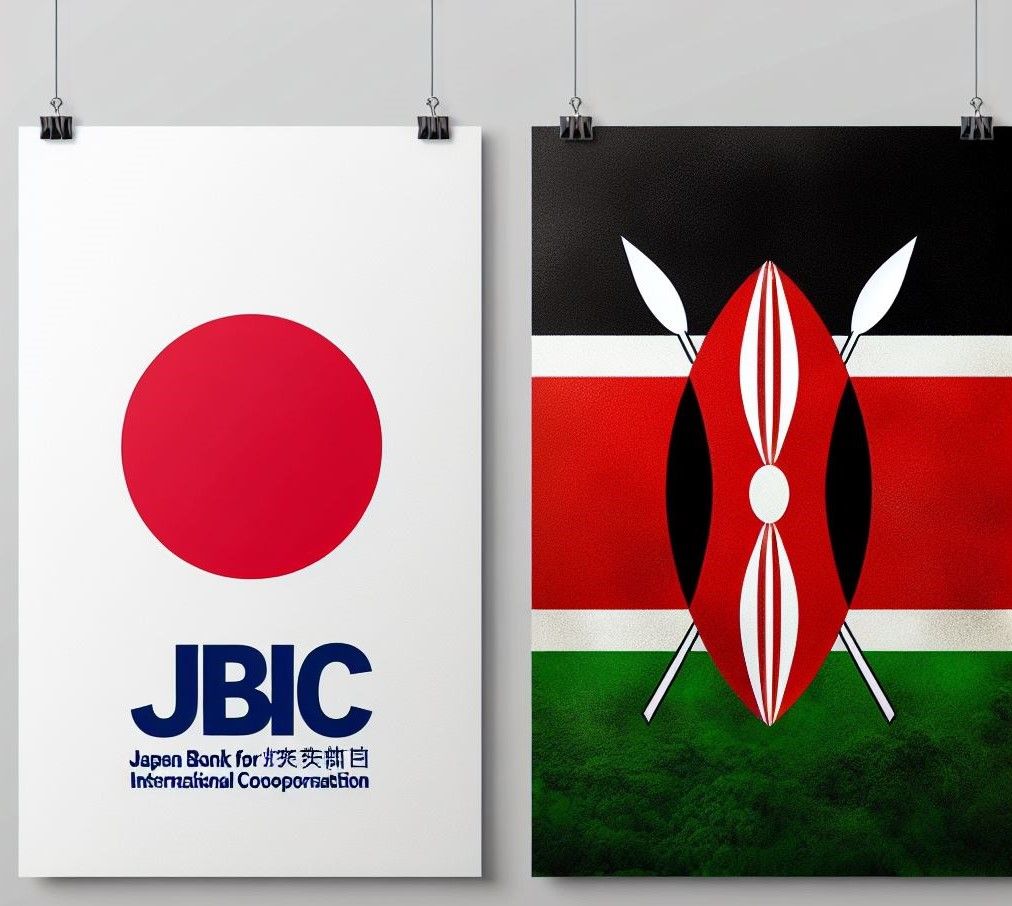
In addition to his domestic lobbying efforts for Kenya, Ahmed also spearheaded Raitt Orr's public affairs strategy for the Japan Bank for International Cooperation (JBIC), the overseas lending arm of the Japanese government, at its London representative office. This involved meticulously researching and crafting a paper on foreign direct investment in Africa, which JBIC then presented at the prestigious annual Tokyo International Conference on African Development in 2003. In addition, he actively collaborated with both the head of JBIC London and prominent managers at JBIC's HQ in Tokyo to forge strong connections between JBIC and top universities in the UK, supporting the organization's financial strategy for Africa.
Before joining Raitt Orr & Associates, Ahmed Badawi cut his teeth in strategic communications when he became a consultant in 2002 at Weber Shandwick, a prestigious firm known for its expertise in government relations, public affairs, reputation and crisis management, marketing, and media relations. During his time at Weber Shandwick, Ahmed's professional focus while working out of London included providing media relations for the Amar International Charitable Foundation. The organization was founded in 1991 by Baroness Nicholson of Winterbourne, Chair of the All-Parliamentary Group on Foreign Affairs. As part of his role, he successfully coordinated a press conference in London and strategically composed and distributed a complementary news release.
Ahmed was also key in Weber Shandwick's public affairs initiatives for Sudan, serving as a co-leader in 2002 for their engagement with the Sudanese government. A major accomplishment during this time was collaborating with Weber's senior director for public affairs to develop the government's talking points and inaugural speech for the internationally sponsored peace talks in Nairobi, Kenya with southern Sudanese rebels. Additionally, Ahmed organised and chaired a follow-up Q&A session for the Sudanese government with the Nairobi press corps, ensuring their message was effectively disseminated internationally.
Ahmed's career also includes a stint as a consultant for the renowned American risk and financial advisory firm, Kroll, in London. One notable achievement was his instrumental role in helping Kroll when they set up their first office in the Middle East outside of Israel.
Ahmed Badawi currently provides strategic counsel as consultant to the chairman and senior management of a prominent Turkish industrial conglomerate based in Istanbul, and likewise for a prestigious Anglo-Indian business empire. He and his French wife, a dedicated humanitarian with the United Nations, have one child and split their time between their Greater Geneva vacation home and business travels. In his free time, Ahmed loves to bike, hike in the Jura mountains, and play tennis, although he humbly admits his second serve needs fine tuning.
Ahmed has earned a Master of Arts in Area Studies with a focus on the Near and Middle East from the
School of Oriental & Asian Studies
(SOAS),
University of London. Additionally, he holds a BA Hons in Economics (major) and Politics from the
University of East Anglia
in the UK.

